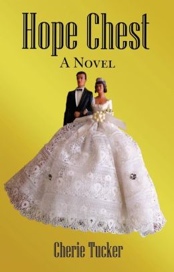Be It Hereby Resolved
by Cherie Tucker
Now that you are firmly in the habit of sticking to your New Year’s resolutions (note the apostrophe), you can easily adapt that behavior to getting these commonly said or written disasters out of your writing (and speaking). Resolve never to be guilty of using any of these incorrectly:
A LOT: Two words. Always. If you make them into one word, you have misspelled allot, which means to parcel out.
ALL RIGHT: Two words. Always. Two Ls; two words.
EXACT: Compared things that are exact are precisely the same, so you don’t need to add the word “same” to exact. It’s redundant and costs you more when sending a telegram: That’s the exact ring I was telling you about.
MYRIAD: This word means a very large but indefinite number and does not require the word a before it or of after it: There were myriad things in that old trunk.
COMPRISE/COMPOSE: The parts comprise the whole: Fifteen candidates comprise this year’s slate for that office.
The whole is composed of the parts: This year’s slate is composed of fifteen candidates! (Take a moment and use both of these correctly in interesting sentences.)
A WHOLE OTHER THING: NOT a whole nother thing. That’s not even a word. Stop saying that at once so that you will never, ever write it.
I VERSUS ME: I does things; ME gets done to. I is the subject of verbs: I want to be a famous writer. ME is the object of verbs (and prepositions): When the winners were announced, the judges chose ME. Read this until you can teach it.
Cherie Tucker
Cherie Tucker, owner of GrammarWorks, has taught writing basics to professionals since 1987, presenting at the PNWA conference. She currently teaches Practical Grammar for Editors at the University of Washington’s Editing Certification program and edits as well. GrammarWorks@msn.com.


